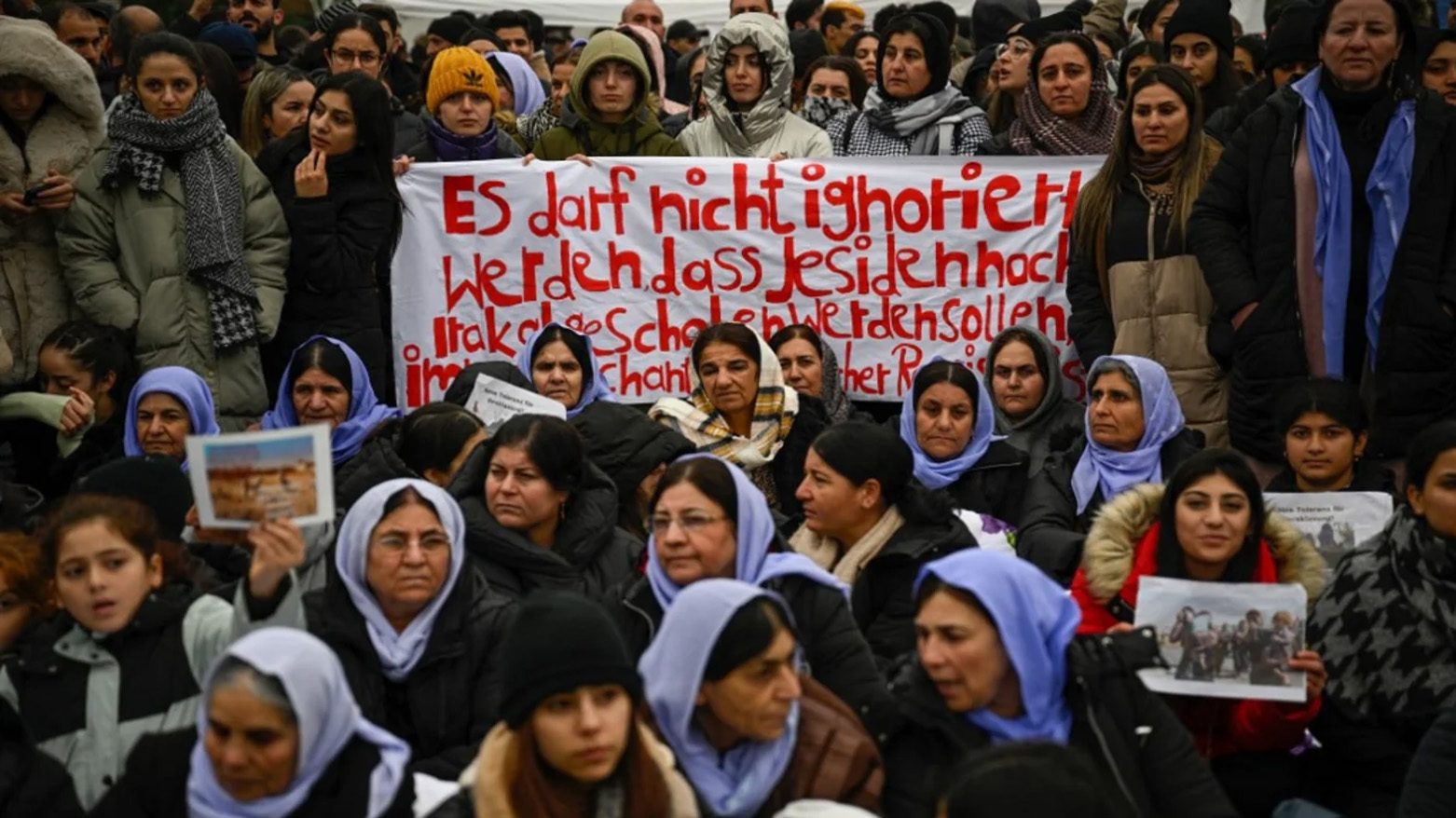German court rejects deported Yazidi family's return
German court denies Yazidi family’s return after deportation to Iraq. The Potsdam court upheld their removal, ruling no individual persecution risk despite Yazidi genocide recognition. The family, who lived in Brandenburg since 2014, was deported in 2023.

ERBIL (Kurdistan24) – The Potsdam Administrative Court has rejected an emergency application from a Yazidi family seeking to return to Germany after their deportation to Iraq, ruling that their removal was legally valid despite growing political pressure and public outcry.
According to DW, the family—two parents and four children—are members of the Yazidi minority targeted by the so-called Islamic State (IS) in a 2014 genocidal campaign, officially recognized by the German parliament in 2023. They had lived for years in the town of Lychen, Brandenburg, where the children were integrated into local schools.
In its Thursday decision, the court upheld a March 2023 ruling by the Federal Office for Migration and Refugees (BAMF) that rejected the family’s protection claim as “manifestly unfounded” and found no legal barrier to deportation. Judges stated they saw no evidence of “individual persecution” or current large-scale group persecution of Yazidis, nor a significant individual threat such as IS-related targeting.
The court also noted that the deportation order had been enforceable since 2023. While another court had suspended the family’s obligation to leave in a July 22 emergency ruling, that decision was delivered only after the deportation had already taken place.
The deportation was carried out on a charter flight from Leipzig to Baghdad carrying 43 people. German authorities initially claimed that only single men—some with criminal records—were on board. But according to DW it later emerged that this was not the case, and the Yazidi family had been among the deportees.
Brandenburg’s Interior Minister Rene Wilke described the situation as “deeply concerning” and said he had requested federal authorities to explore bringing the family back—if legal grounds emerged to do so. The BAMF, however, defended its position, citing the earlier failed asylum claim and current security assessments that classify Iraq as posing no recognized danger to the family.
The case has stirred alarm among Yazidi advocacy organizations, including Nadia’s Initiative, which warns that similar removal orders have been issued to other Yazidi families in Germany. They argue that many Yazidis still cannot safely return due to the destruction of villages, ongoing insecurity, and the presence of IS remnants in Iraq.
Politicians from the Social Democrats, the Greens, and the Left Party have joined calls for the family’s return, citing both Germany’s recognition of the Yazidi genocide and its moral responsibility toward survivors.
The ruling comes amid broader concern over Germany’s new deportation policy, which allows for the removal of refugees to their countries of origin under expanded criteria. According to official German data, more than 800 refugees were deported to Iraq last year, many from the Kurdistan Region.
Yazidi refugees say the policy places them in grave danger. Qasim Jamil, a young Yazidi in Germany, told Kurdistan24: “We came to Germany to build a future for ourselves, to work and study. We cannot be forced back because we do not know when another disaster will strike Sinjar. We have many enemies in Iraq, and terrible things are being said about us.”
Jamil Ismail, deputy head of the Yazidi House in Germany, described the decision as deeply troubling. “We are very saddened by Germany’s decision. Refugees endure dangerous journeys, often crossing more than 30 kilometers by water and facing countless hardships to reach safety here. Returning them now places them in a dire situation,” he said.
He urged Berlin to reverse course: “The German government should review its decision to deport refugees and refrain from implementing it.”
The case has reignited debate in Germany over how asylum policy should treat communities that have endured mass atrocities. For many critics, the court’s strict legal reasoning stands in sharp contrast to humanitarian obligations arising from genocide recognition—exposing a deep divide between the letter of the law and moral responsibility.
